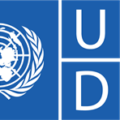Programme Specialist (EVAW)
JOB DETAIL
UNDP is committed to achieving workforce diversity in terms of gender, nationality and culture. Individuals from minority groups, indigenous groups and persons with disabilities are equally encouraged to apply. All applications will be treated with the strictest confidence.
UNDP does not tolerate sexual exploitation and abuse, any kind of harassment, including sexual harassment, and discrimination. All selected candidates will, therefore, undergo rigorous reference and background checks.
Background |
|
| UN Women, grounded in the vision of equality enshrined in the Charter of the United Nations, works for the elimination of discrimination against women and girls; the empowerment of women; and the achievement of equality between women and men as partners and beneficiaries of development, human rights, humanitarian action and peace and security.
Placing women’s rights at the center of all its efforts, UN Women leads and coordinates United Nations System efforts to ensure that commitments on gender equality and gender mainstreaming translate into action throughout the world. It provides strong and coherent leadership in support of Member States’ priorities and efforts, building effective partnerships with civil society and other relevant actors. Afghanistan is one of the world’s most complex emergencies, and the world’s largest humanitarian crisis. Afghan people are grappling with the impact of conflict, poverty, economic decline, and natural disasters. In this context, Afghan women and girls face unique vulnerabilities and require urgent support as gender inequality is interwoven with conflict dynamics and humanitarian needs. It is essential that Afghan women and girls can continue to shape the development of their country, and that their gains are protected. UN Women remains fully committed to supporting Afghan women and girls and to putting them at the center of the global response to the crisis in Afghanistan. UN Women has been in Afghanistan for two decades. UN Women’s programming approach is informed by analysis of the political, economic and humanitarian situation, risks to and capacities of partner organizations, and needs of Afghan women and girls. UN Women Afghanistan currently has four key programme priorities: (1) Gender in Humanitarian Action, (2) Ending Violence Against Women (EVAW), (3) Women’s Economic Empowerment, and (4) Women, Peace and Security. Under the overall guidance from the Country Representative and direct supervision from Deputy Country Representative, the Programme Specialist of the EVAW is responsible for implementation of the EVAW portfolio; providing advisory and programme development services to the Strategic programme direction, overseeing programme coordination and lead policy development. She/he will have budgetary and professional responsibility over programme. Engages with high level government representatives, civil society and donors on programme related issues and initiatives. Review s programme and donor reports. Leads high level advocacy initiatives and knowledge management. Provides guidance and vision on technical capacity development. The Programme Specialist is also responsible for ensuring synergies of various programmes and initiatives in the office, where applicable. |
|
Duties and Responsibilities |
|
2. Manage the implementation and management of EVAW Projects
3. Manage technical assistance and capacity development to project/programme partners
4. Manage the monitoring and reporting of the programme/project
5. Manage the people and financial resources of the EVAW programme
6. Build partnerships and support in developing resource mobilization strategies
7. Manage advocacy, knowledge building and communication efforts
Key Performance Indicators
|
|
Competencies |
|
Core Values:
Core Competencies:
Please visit this link for more information on UN Women’s Core Values and Competencies: https://www.unwomen.org/sites/default/files/Headquarters/Attachments/Sections/About%20Us/Employment/UN-Women-values-and-competencies-framework-en.pdf FUNCTIONAL COMPETENCIES:
|
|
Required Skills and Experience |
|
Education, Experiance and certification:
Language Requirements:
Due to high sensitivities related to provision of protection services by Un Women Afghanistan Office to VAW survivors, female candidates are strongly encouraged to apply. Application:
Note: In July 2010, the United Nations General Assembly created UN Women, the United Nations Entity for Gender Equality, and the Empowerment of Women. The creation of UN Women came about as part of the UN reform agenda, bringing together resources and mandates for greater impact. It merges and builds on the important work of four previously distinct parts of the UN system (DAW, OSAGI, INSTRAW, and UNIFEM), which focused exclusively on gender equality and women’s empowerment. Inclusion Statement: At UN Women, we are committed to creating a diverse and inclusive environment of mutual respect. UN Women recruits employ, trains, compensates and promotes regardless of race, religion, color, sex, gender identity, sexual orientation, age, ability, national origin, or any other basis covered by appropriate law. All employment is decided on the basis of qualifications, competence, integrity, and organizational need. If you need any reasonable accommodation to support your participation in the recruitment and selection process, please include this information in your application. UN Women has a zero-tolerance policy on conduct that is incompatible with the aims and objectives of the United Nations and UN Women, including sexual exploitation and abuse, sexual harassment, abuse of authority, and discrimination. All selected candidates will be expected to adhere to UN Women’s policies and procedures and the standards of conduct expected of UN Women personnel and will therefore undergo rigorous reference and background checks. (Background checks will include the verification of academic credential(s) and employment history. Selected candidates may be required to provide additional information to conduct a background check.) |
|

